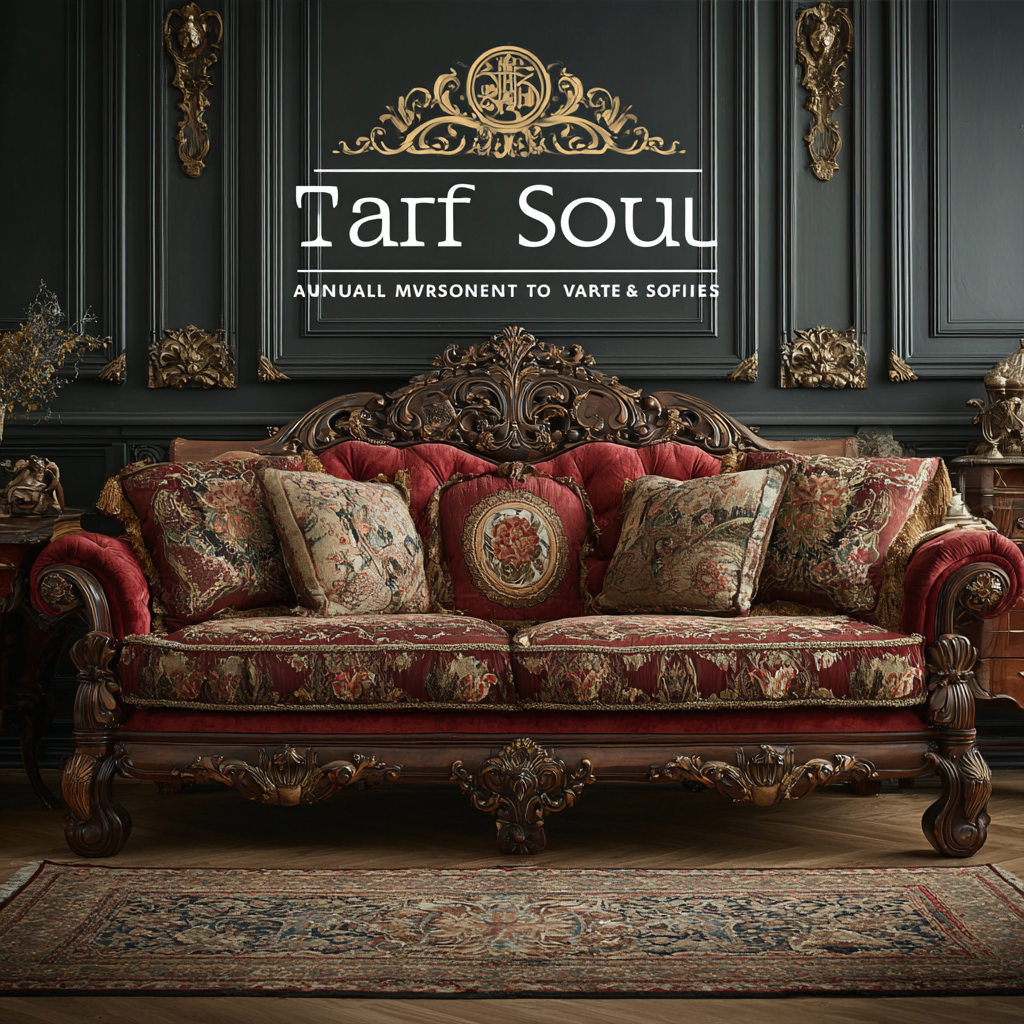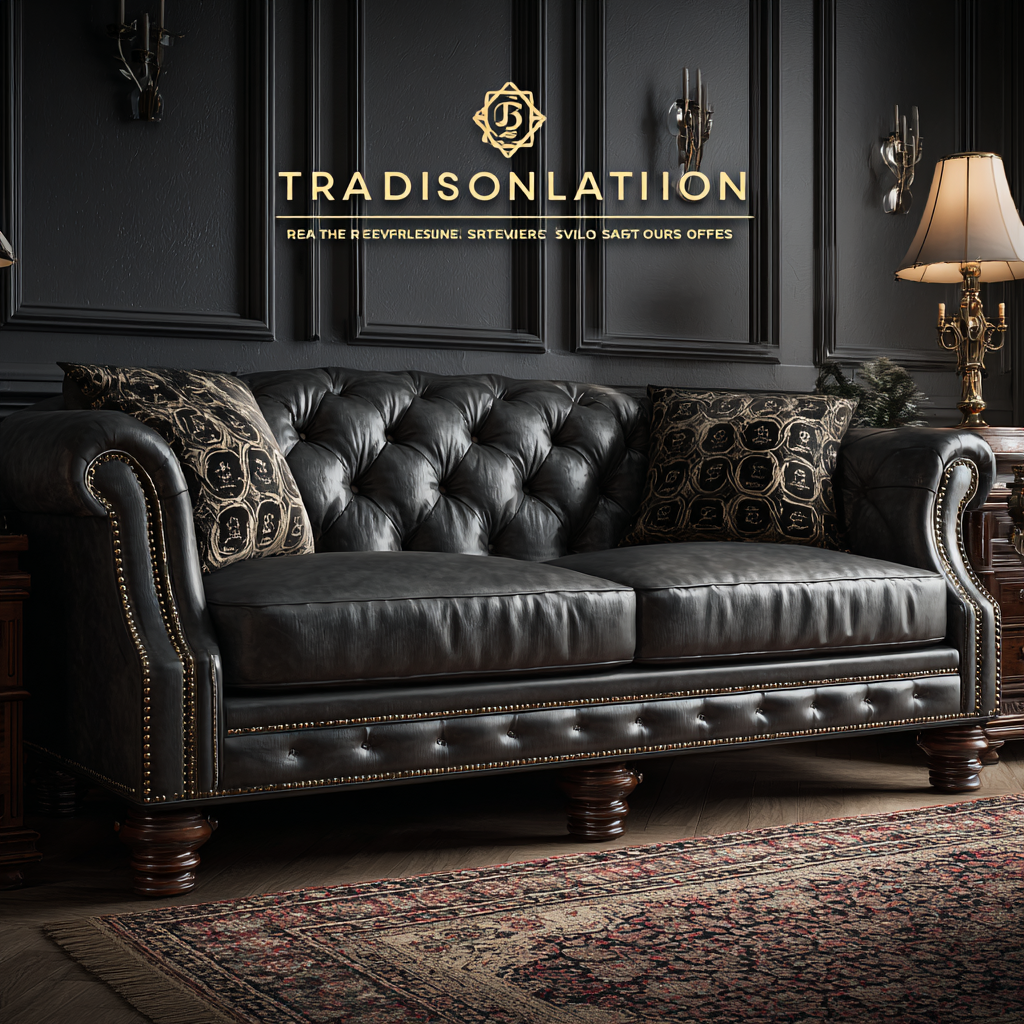In the competitive furniture market, the importance of after-sales service cannot be overstated, particularly when it comes to Traditional Sofas. According to a report by Furniture Today, customer satisfaction significantly influences purchasing decisions, with 70% of consumers indicating that they would return to a retailer if they received exceptional post-purchase support. This highlights the necessity for manufacturers to not only offer superior products but also to ensure that their after-sales service aligns with customer expectations. In an industry where quality craftsmanship is paramount, Chinese manufacturers have emerged as leaders, providing outstanding Traditional Sofas that combine both style and durability. By maximizing investment through superior after-sales service, brands can enhance customer loyalty and ensure long-term success in a global market.

When investing in traditional sofas, understanding the key after-sales services can significantly enhance their longevity and overall value. High-quality after-sales support includes not only warranty protection but also maintenance services that keep your sofa looking and feeling new. Companies that offer cleaning and repair services can help extend the life of your furniture, saving you money in the long run. These services often include specialized cleaning recommendations that suit the materials used in your sofa, ensuring that you maintain its aesthetic appeal without damaging the fabric or frame.
In addition to maintenance services, having access to knowledgeable customer support can make a significant difference. When clients have questions about care or need assistance with minor repairs, a responsive after-sales team can enhance the ownership experience. This can include providing guidance on how to best position your sofa to prevent wear and tear, or advice on how to spot and treat stains promptly. Together, these key after-sales services not only help you maintain your investment but can also boost the resale value of your traditional sofa, making it a smart choice for discerning buyers.

In today's competitive market, furniture retailers are increasingly relying on technology to enhance their after-sales support, thereby improving customer satisfaction and loyalty. Advanced CRM systems enable retailers to manage customer inquiries effectively, track service requests, and provide timely responses. By leveraging data analytics, retailers can identify common issues faced by customers and proactively address them, ensuring that any potential problems with traditional sofas are resolved swiftly.
Moreover, the integration of smart technology in furniture design is transforming the after-sales experience. Retailers can provide customers with easy-to-access digital manuals and augmented reality tools that guide them through maintenance and care tips. Virtual customer service representatives can offer real-time assistance via chatbots or video calls, making it convenient for customers to seek help when they face issues. This seamless communication not only resolves problems quickly but also fosters a sense of community and trust between the retailer and the customer, ultimately maximizing the overall investment made in traditional sofas.
| Service Type | Technology Used | Customer Satisfaction Rate (%) | Response Time (Hours) | Follow-Up Methods |
|---|---|---|---|---|
| Warranty Support | CRM Software | 85% | 24 | Email and Phone Calls |
| Repair Services | Mobile Apps | 90% | 48 | In-App Messaging |
| Customer Feedback Collection | Online Surveys | 88% | Quick (Immediate) | SMS and Email |
| Replacement Services | Inventory Management System | 82% | 36 | Contact via App |
When investing in traditional sofas, customers naturally expect high-quality products coupled with exceptional after-sales service. A comprehensive after-sales service strategy is essential to ensure customer satisfaction and loyalty. First, it's critical to establish clear communication channels. This includes responsive customer support through multiple platforms such as phone, email, and live chat. Proactive communication, such as follow-up calls or satisfaction surveys, can also enhance customer experiences.
Another vital component is maintenance and warranty services. Offering extended warranties and easy access to repair services not only builds trust but also reassures customers that their investment is protected. Additionally, providing care instructions and tips on maintaining the sofa can empower customers, enhancing their overall experience. Including a simple yet effective process for handling returns and exchanges also reflects a customer-centric approach, making it imperative that this service is straightforward and hassle-free. By focusing on these essential components, businesses can maximize their investment in traditional sofas while fostering lasting relationships with their customers.
This chart illustrates the essential components of a comprehensive after sales service strategy for traditional sofas, focusing on customer satisfaction and service effectiveness.
In the competitive landscape of traditional sofas, customer expectations regarding after-sales service have evolved significantly. According to a report by the American Home Furnishings Alliance, nearly 70% of consumers prioritize exceptional after-sales service when choosing furniture brands. This trend reflects a growing demand for companies to provide not only quality products but also comprehensive support, including warranties, easy returns, and timely repairs. The emphasis on after-sales service has shifted from being an optional perk to a critical component of the customer experience.
Furthermore, a survey conducted by the International Furniture Design Association revealed that over 80% of buyers are willing to pay more for traditional sofas from brands that offer superior after-sales service. Consumers today value personalized support, including proactive communication about maintenance and service options. As preferences evolve, furniture retailers are increasingly adapting their business models to include enhanced service experiences, such as on-site consultations and digital tracking of service requests. This shift not only fosters customer loyalty but also positions brands as leaders in a market that prioritizes both product quality and service excellence.
In today’s competitive furniture market, after-sales service plays a crucial role in maximizing customer satisfaction, particularly for traditional sofas. Effective communication channels can be the difference between a loyal customer base and one that seeks alternatives. It’s vital to establish multiple touchpoints such as email, phone support, and social media platforms, allowing customers to reach out with their concerns or inquiries at their convenience.
Tip: Ensure your team is trained to respond promptly and effectively across all channels. A quick response time can significantly enhance the customer experience. Additionally, consider implementing a follow-up system, where representatives check in with customers after a purchase to address any potential issues, reinforcing your commitment to service.
Another key strategy is to provide detailed information regarding care and maintenance of the sofas. This not only helps customers preserve their investment, but also cultivates trust and satisfaction.
Tip: Create easily accessible online resources, such as FAQs and instructional videos, which can empower customers to handle simple issues themselves. This proactive approach not only alleviates customer concerns but also fosters a sense of independence, leading to a favorable brand image.

